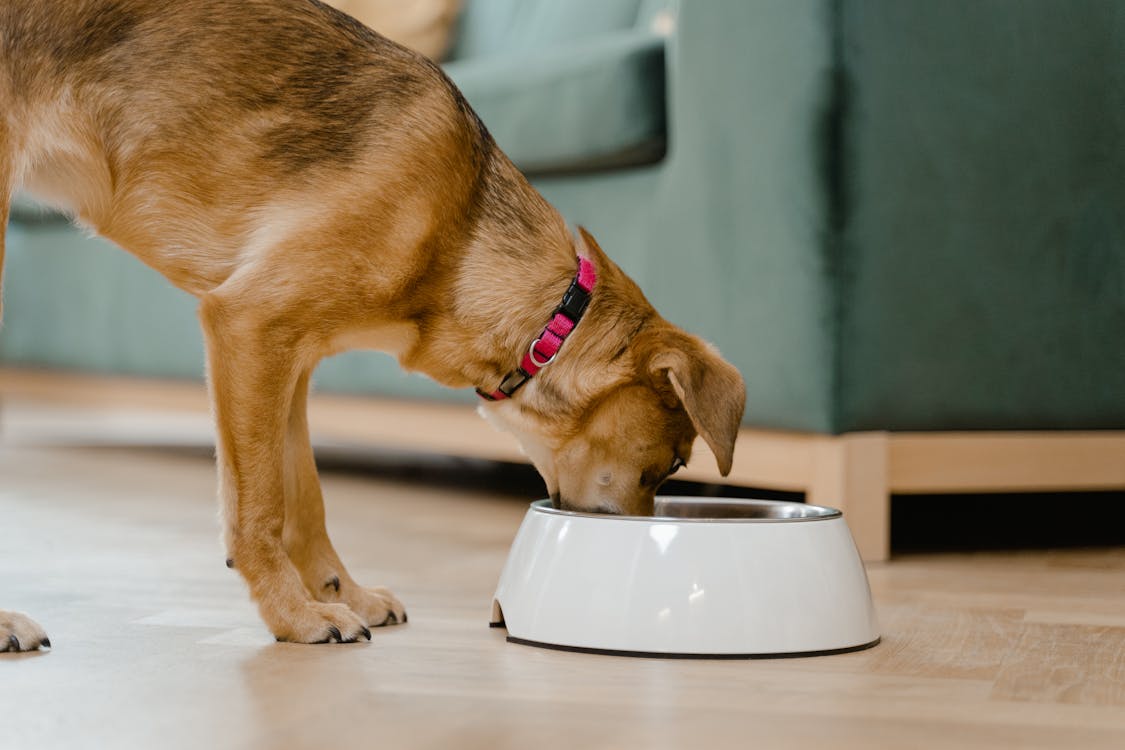When it comes to providing our canine companions with the best nutrition, there is no shortage of advice and opinions out there. Unfortunately, not all of the information floating around is accurate. To ensure your pup is getting the right nutrition, it’s important to be aware of the most common dog nutrition myths that should not be believed. In this blog post, we’ll examine 10 of the most popular dog nutrition myths and provide reliable information on what is really best for your furry friend.
1) Dogs can eat anything

Myth! While dogs may be able to eat a wider range of foods than humans, that doesn’t mean they should. Some human foods, such as chocolate, grapes, and onions, can be toxic to dogs. In addition, feeding dogs a steady diet of table scraps can lead to nutritional imbalances and weight gain. It’s important to research and provide dogs with a balanced, appropriate diet.
2) Grain-free diets are best for all dogs
Myth. While some dogs may benefit from a grain-free diet, it’s not necessary for all dogs. Dogs can digest grains just fine and many high-quality commercial dog foods include them in their formulas. If your dog has a grain allergy or sensitivity, then a grain-free diet may be necessary, but otherwise, there’s no need to go grain-free. Always consult with your veterinarian before making any major changes to your dog’s diet.
3) Raw diets are the healthiest option

This is a common myth in the dog nutrition world. While raw diets can provide some benefits such as cleaner teeth and shinier coats, they can also come with serious health risks such as bacterial infections and nutrient imbalances. It is important to consult with a veterinarian and do extensive research before switching your dog to a raw diet.
4) Homemade diets are always better than commercial diets
Myth. While it is true that homemade diets can be beneficial for some dogs, it is not always the case. Creating a nutritionally balanced homemade diet requires careful planning and research to ensure that the dog is getting all the necessary nutrients. On the other hand, commercial diets have undergone rigorous testing and have been formulated to meet the nutritional needs of dogs. It is essential to consult with a veterinarian or a veterinary nutritionist before switching to a homemade diet.
5) Dogs don’t need carbohydrates in their diet

False. While dogs are primarily carnivores, they can benefit from a moderate amount of carbohydrates in their diet. Carbohydrates provide energy and fiber, and can also help regulate blood sugar levels. Just make sure the carbohydrates come from healthy sources such as whole grains, fruits, and vegetables.
6) High protein diets are best for all dogs
Myth. While dogs do need protein in their diets, not all dogs need a high protein diet. Dogs that are highly active or working dogs may require a higher protein diet to meet their energy needs. However, for dogs that are less active or senior dogs, a high protein diet can actually be harmful and put unnecessary strain on their kidneys. It’s important to consult with your veterinarian to determine the appropriate protein levels for your dog’s individual needs.
7) Dogs should not be given human food or table scraps

Myth. While it’s true that some human foods can be harmful to dogs, such as chocolate, onions, and grapes, many human foods can actually be beneficial to your pup’s diet. For example, plain cooked meats, fruits like apples and bananas, and vegetables like green beans and sweet potatoes can all be healthy additions to your dog’s meals. Just make sure to avoid foods with high fat, salt, or sugar content and always consult with your veterinarian before making any significant changes to your dog’s diet.
8) All dogs need to take supplements
False. While supplements can be beneficial for some dogs with specific health issues or dietary deficiencies, most dogs can receive all necessary nutrients through a balanced diet. It’s important to consult with a veterinarian before giving any supplements to your dog, as too much of certain vitamins and minerals can be harmful.
9) Senior dogs need special food

True. As dogs age, their nutritional needs change. They may require less calories due to reduced activity levels, and they may also have trouble digesting certain ingredients. Special senior dog foods are formulated to meet the changing needs of older dogs, including lower fat and higher fiber content to aid in digestion. Consult with your veterinarian to determine the best senior dog food for your furry friend.
10) Low-fat diets are always better for dogs
Myth. While it’s important to watch your dog’s fat intake to maintain a healthy weight, not all dogs require a low-fat diet. Some dogs need more fat in their diet, such as working or highly active dogs, while others may need less due to health issues like pancreatitis. Consult with your veterinarian to determine the appropriate fat content for your dog’s specific needs.


